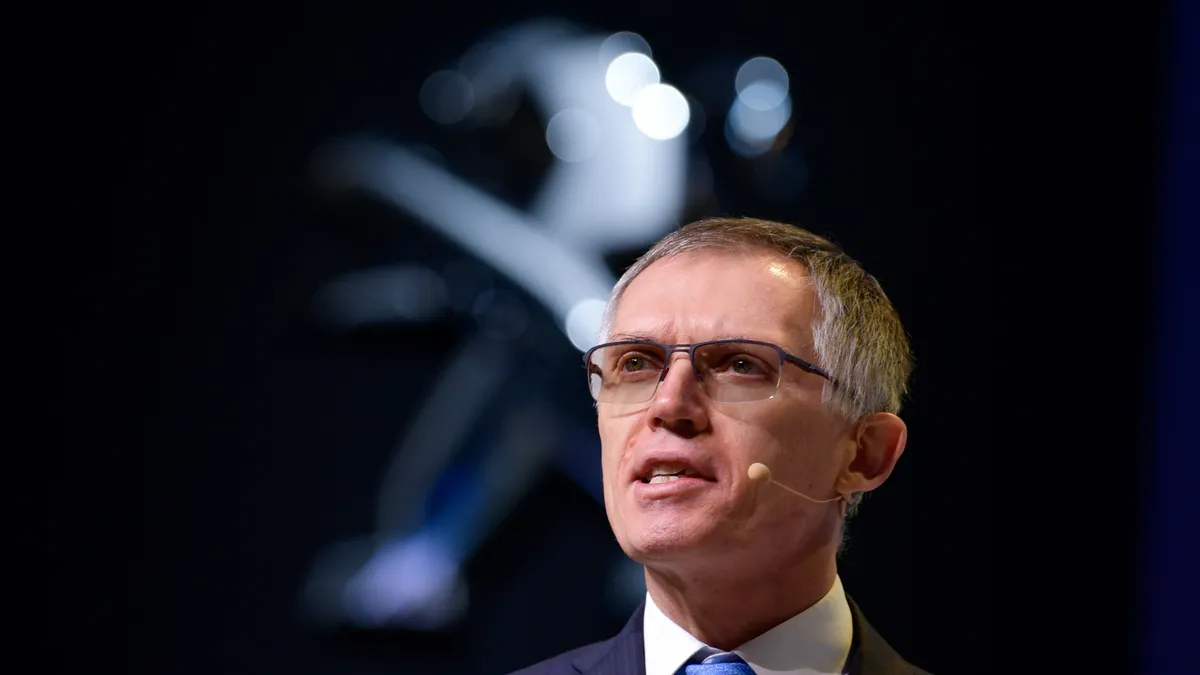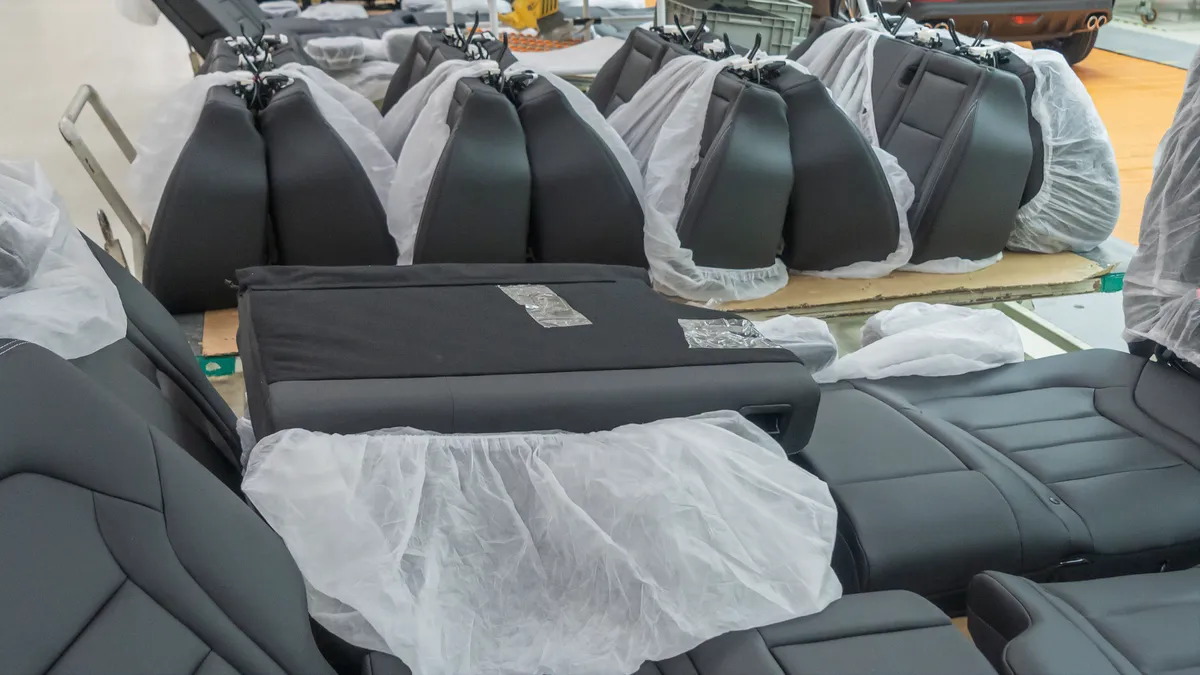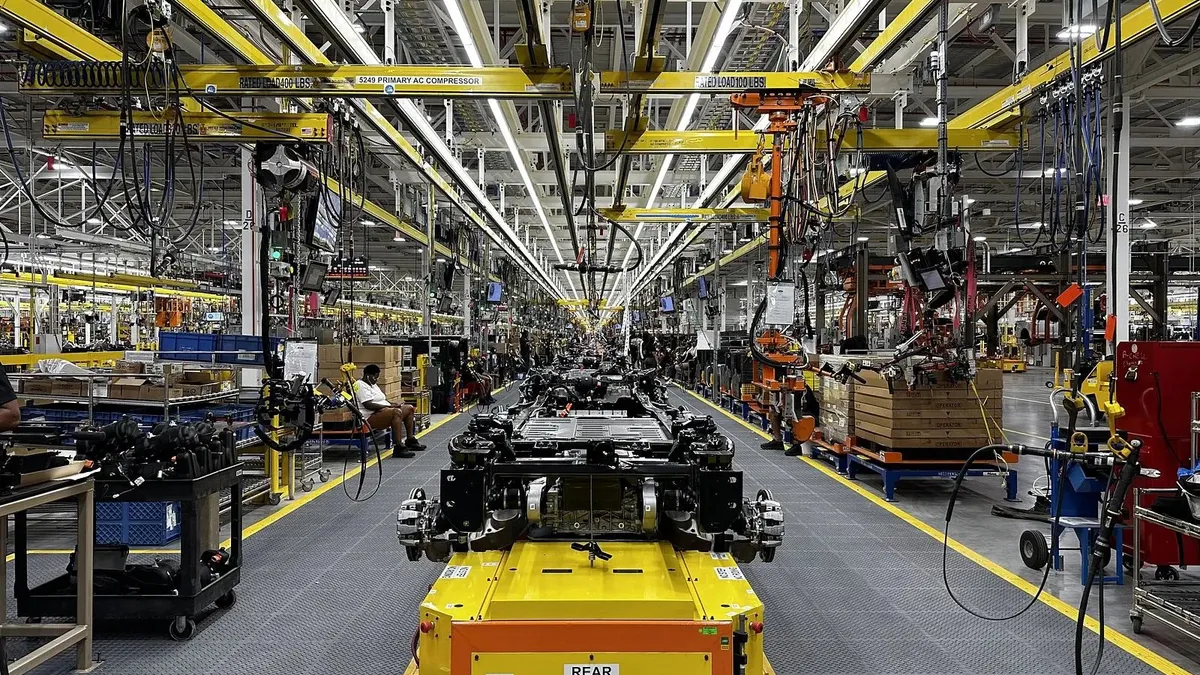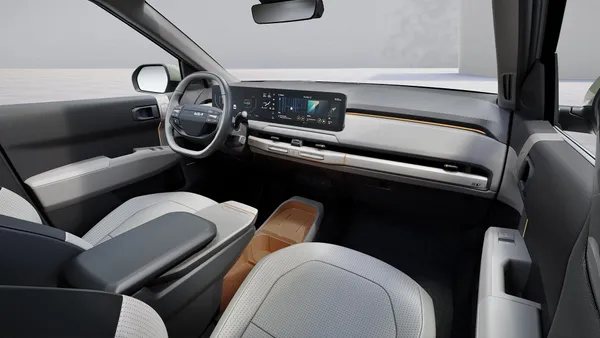When it comes to the electric vehicle market, time is of the essence, Stellantis CEO Carlos Tavares argues. But it has little effect when China-based automakers are already “knocking at your door.”
“Yes, time helps, but you cannot stop the competition,” he said during a fireside chat at the Bernstein 40th Annual Strategic Decisions Conference on May 29.
Tavares said governments, specifically the U.S. and European Union, are trying to manage short-term issues with expanded tariffs and other restrictions, but have failed to address what will make their respective automotive sectors truly competitive on a global scale.
The highest-paid chief executive among the Detroit Three believes isolating industry from competition creates inflation inside of these protective “bubbles” and kills export capabilities.
“The winners are going to be the guys that can manufacture inside of the bubble — the best engineering and the best technologies for the lowest cost,” Tavares said. “The global companies that will be exposed to the harsh competition of the Chinese carmakers are going to be the winners, if they are able to survive the Chinese competition.”
Stellantis is working toward being one of the victors, Tavares continued, noting the automaker plans to offer at least 47 electric models by the end of 2024. The company is focused on three major EV factors: significant range, multi-energy and affordability.
Tavares said Stellantis aims to bring a $25,000 battery-electric vehicle to the U.S. market, similar to the Citroën ë-C3, which is priced at 20,000 euros.
“Affordability is the key success factor right now. Why? Because if you want the scale to materialize, you need to be selling EVs to the middle classes. Which basically means that you need to sell the BEVs at the price of ICEs, and that is where the challenge is for everybody,” he said.
Last week, Stellantis introduced Jeep’s first BEV: The 2024 Jeep Wagoneer S. It has a range of more than 300 miles. The new vehicle, which is expected to debut in the U.S. and Canada in the second half of 2024, has a 400-volt, 100-kilowatt-hour battery pack that allows owners to charge the vehicle from 20% to 80% in 23 minutes, according to a press release.
But the Jeep Wagoneer S falls short when it comes to Tavares’ affordability factor as it has a starting MSRP of $70,200.












